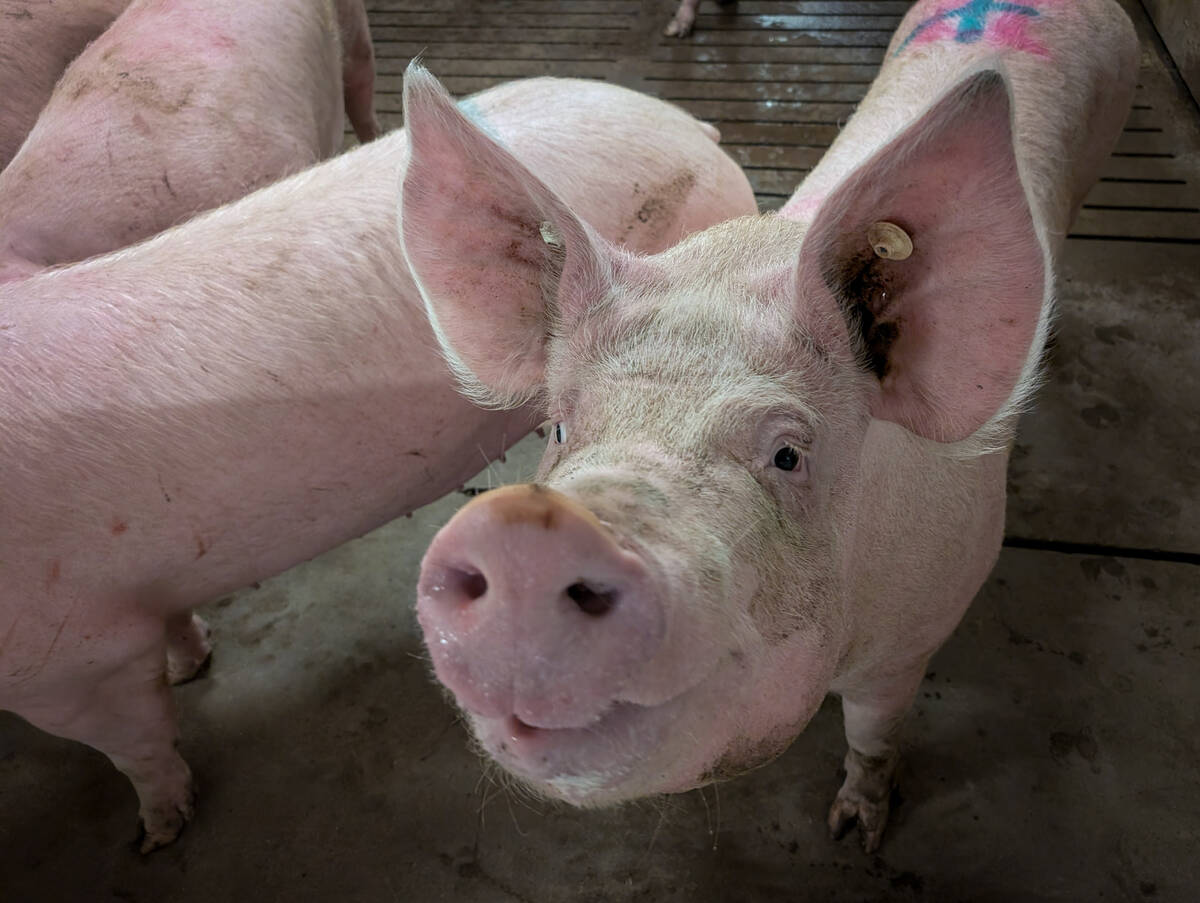One of the largest shareholders in Maple Leaf Foods says it will sell some of its voting stock and all its non-voting stock in the iconic Canadian food processor.
The Ontario Teachers’ Pension Plan said Tuesday it will sell 10.3 million non-voting common shares, 3.4 million voting shares and 2.2 million warrants convertible into voting shares of Maple Leaf to West Face Capital, a Toronto investment management firm.
The deal, if completed with the warrants fully exercised, would give funds managed by West Face an 11.4 per cent stake in Maple Leaf, while trimming Teachers’ control from about 36.27 per cent down to 25.23 per cent.
Read Also

Gene edited, PRRS resistant pig approved in Canada
Canada has given its stamp of approval to pigs gene edited to resist porcine reproductive and respiratory syndrome (PRRS).
“While we have been a long-term and supportive investor of (Maple Leaf), this sale opportunity was in the best interests of the fund and our members’, on whose behalf we invest,” Neil Petroff, Teachers’ executive vice-president for investments, said in a release Tuesday.
“We will still consider all of our options with respect to our remaining (Maple Leaf) shareholdings, but our current intention is to work with the company to maximize the value of our investment.”
Neither West Face nor Teachers would disclose how much money changed hands in this deal.
Teachers’ partial sale of its Maple Leaf holdings follow the Toronto-based food and meat firm’s decision in June to set up a “poison pill” plan on its shares — a move Teachers rejected last month.
The pension plan noted Tuesday it still “continues to oppose” the poison pill, which companies adopting one commonly describe as a “shareholders’ rights plan.”
Maple Leaf said in June that its poison pill wasn’t a response to any “actual or anticipated transaction.” However, such a plan stands to make a large stake such as Teachers’ less appetizing to an uninvited buyer.
A poison pill, if triggered by an unasked-for takeover bid, automatically floods the market with cut-price shares that are offered to every shareholder other than the unsolicited bidder, thus diluting the unasked-for bidder’s stake.
In Maple Leaf’s case, the company would “swallow” its pill by issuing new shares at a 50 per cent discount from the publicly traded share price, when or if any unsolicited shareholder gobbles up more than 20 per cent of Maple Leaf’s publicly traded shares.
Petroff at the time criticized the plan as preventing Teachers “from exercising our legal rights as shareholders.”
“Investment purposes”
Maple Leaf’s plan stipulates that neither Teachers nor the company’s other major shareholder, McCain Capital, would trigger the poison pill, as long as neither moves to increase its ownership stake, unless it’s through the board’s “permitted bid” option.
Maple Leaf put the pill in place following the June 30 expiry of an agreement between Teachers and McCain Capital which had neatly organized control of Maple Leaf and its board.
That agreement had called for McCain Capital’s nominees to take three seats on Maple Leaf’s 15-member board of directors, while Teachers’ nominees got two. It had also stipulated the company’s CEO and seven directors were to be “mutually agreed to” by the two shareholders.
West Face’s new ownership stake, which falls well below the 20 per cent line required to trigger the poison pill, was “acquired for investment purposes,” the company said in a release Tuesday.
“We believe the shares of Maple Leaf Foods have significant potential value and we hope to work with the company to enhance value for all shareholders,” West Face partner Thomas Dea said.
Maple Leaf on July 29 posted profit of $2.967 million on $1.271 billion in sales for its second quarter ending June 30, down from $4.899 million on $1.321 billion in the year-earlier period.
Sales declined due to currency impacts on U.S. and U.K. bakery operations and fresh pork sales, and lower sales volumes in prepared meats, Maple Leaf said, noting the decline was “partly offset by higher sales values of fresh pork.”

















